You might not have thought car maintenance could count as school… but it can. And it should.
This unit is packed with real-life skills that every family should learn—skills that empower kids and teens to understand, respect, and even enjoy the mechanics behind the machines we use every day.
We didn’t just teach how to do it; we showed students why it matters. Step by step, we made complex topics simple, engaging, and hands-on. And along the way, students explore engineering and gain a new appreciation for invention.
Meet Grandpa Jack, a retiring mechanic, as he passes down decades of wisdom to his grandson Jimmy. Through their story, students connect with the importance of generational knowledge (practical skills that are rarely taught but deeply valuable).
Students will get their hands dirty (in the best way) learning: spark plugs, oil changes, tire rotations, battery care, fluids, fans, belts, brakes, and more. They’ll even have a blast with automata and invention projects too.
In Core Connections, we dive into the Industrial Revolution, pulling students into an engaging back-and-forth between past and present. They’ll see how history impacts their world today, and how invention and innovation are still part of their story.
This unit was made for everyone—from the car-shy to the car-savvy, from age 7 to 70. It’s one of the most empowering journeys you’ll take as a family.
This is a Full Unit, designed for the whole family to use together, whether you have one student or many. It includes 12 flexible lessons, typically stretched over 4–6 weeks (depending on your pace).
Most families complete 6–8 units per year. Think of one unit like a single “chapter” in a year-long curriculum.
This isn’t one-lesson-per-day curriculum. Each lesson may span multiple days. You set the rhythm.
Every unit is delivered as a PDF digital download, so you can start instantly. Prefer a printed book? You can get that, too! Want to understand all your print options? Flip to the “Print or Digital” page in our BROCHURE for a full breakdown of how to access print copies.
There are three digital guidebooks:
- Early Learner Guidebook (pre-reader to 1st grade) – Designed to keep little hands busy and minds engaged while older students go deeper.
- Growing + Advanced Combo Guidebook (elementary through adult) – Some of our units include a Combo Guidebook, which merges the Growing and Advanced versions into one seamless file. It’s easier for families to use (less to manage, same amount of content). Don’t worry; nothing’s missing. The price is the same because the content is the same… just organized more efficiently.
This is intentionally designed to mimic higher-level education and real-world learning. You won’t find a separate teacher’s manual or student workbook because we don’t believe in busywork. Instead, each guidebook is written directly to the student (and the parent learning alongside) with real instruction, interactive prompts, and a flow that mirrors real-life, higher-level learning.
You’ll see natural cues like “Do this now,” “Write this in your notebook,” and “Pause to discuss,” built right into the lesson. Students learn through notebooking, narration, dictation, and hands-on exploration—no pre-planning required. It might feel different at first. That’s because it is… and it’s intentional.
Included is a Core Connections Companion, which dives deeper into academics across subjects, specifically integrating with the main unit topic. This is how you cover all your core subjects except math. That includes history, science, language arts, geography, art, and more. For transcript and syllabus help, see the links directly above.
Campfire encourages students to think deeply, not just check boxes. That means we don’t ask for rote answers; we ask for reflection, connection, and real understanding. For students used to worksheet-style learning, this can come as a shift. You might notice a transition phase as their brain adjusts to a higher level of engagement, and that’s part of the growth.
Some younger learners (especially ages 6–8) may need extra support or time. It depends on the child. If your student is used to rich read-alouds and open discussion, they may jump right in. Others might benefit from starting with just the Early Learner Guidebook or waiting for Campfire until they’re ready for more independent thinking.
We’ve seen some 7-year-olds fall in love with it. Others needed to wait until 9 to tackle everything comfortably. You know your child best, and this curriculum gives you the freedom to meet them right where they are.
Each unit includes access to our private LINKS page with videos, supply lists, book lists, and bonus resources—everything pre-screened and organized for easy use. Some units also have optional MP3 add-ons for auditory learners.

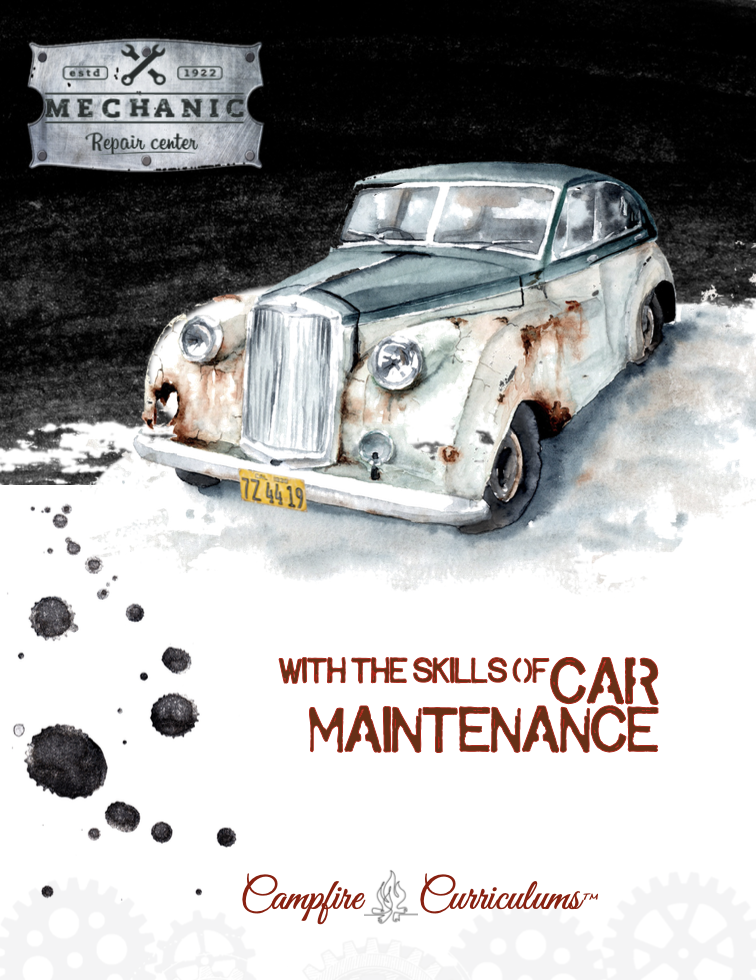

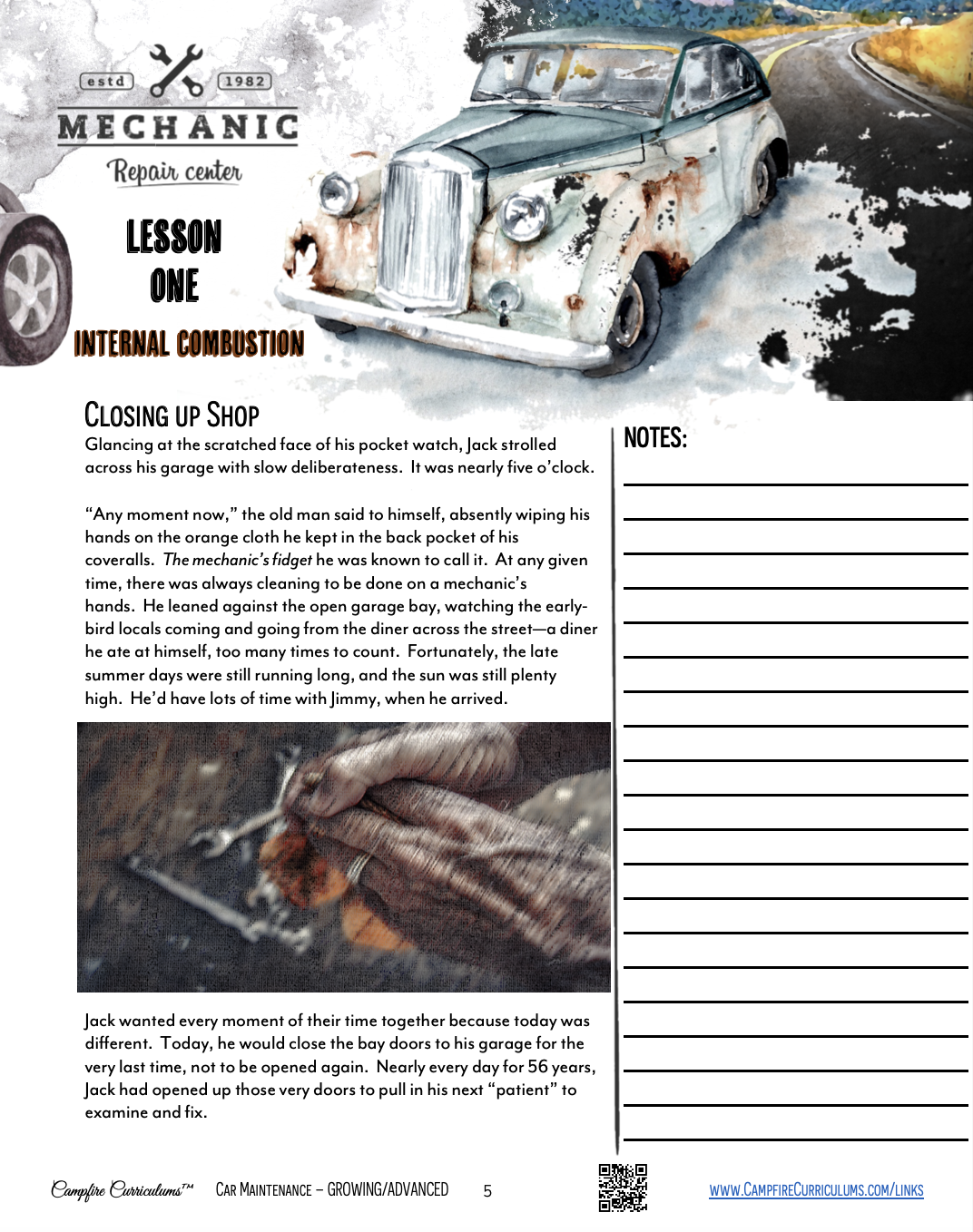
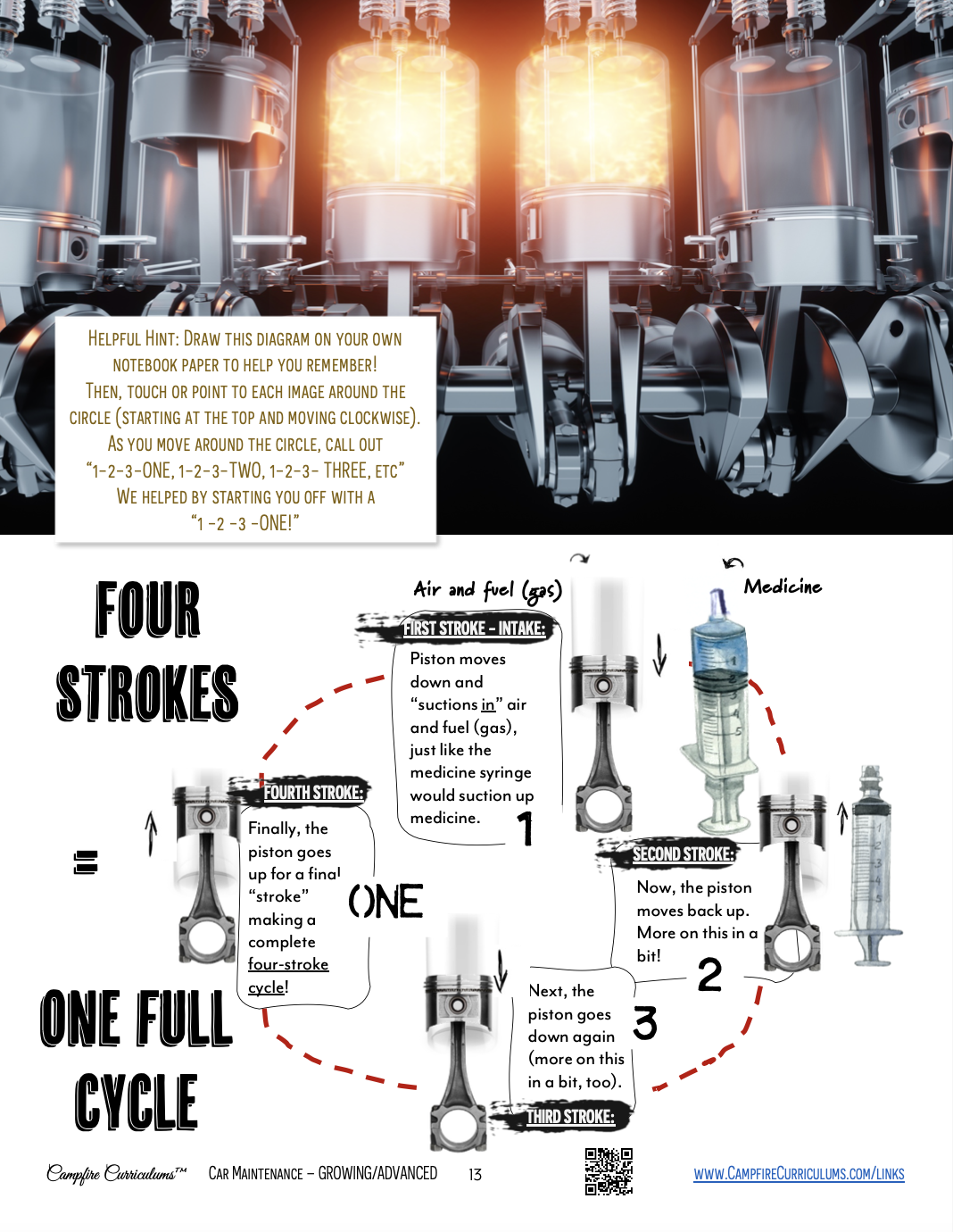
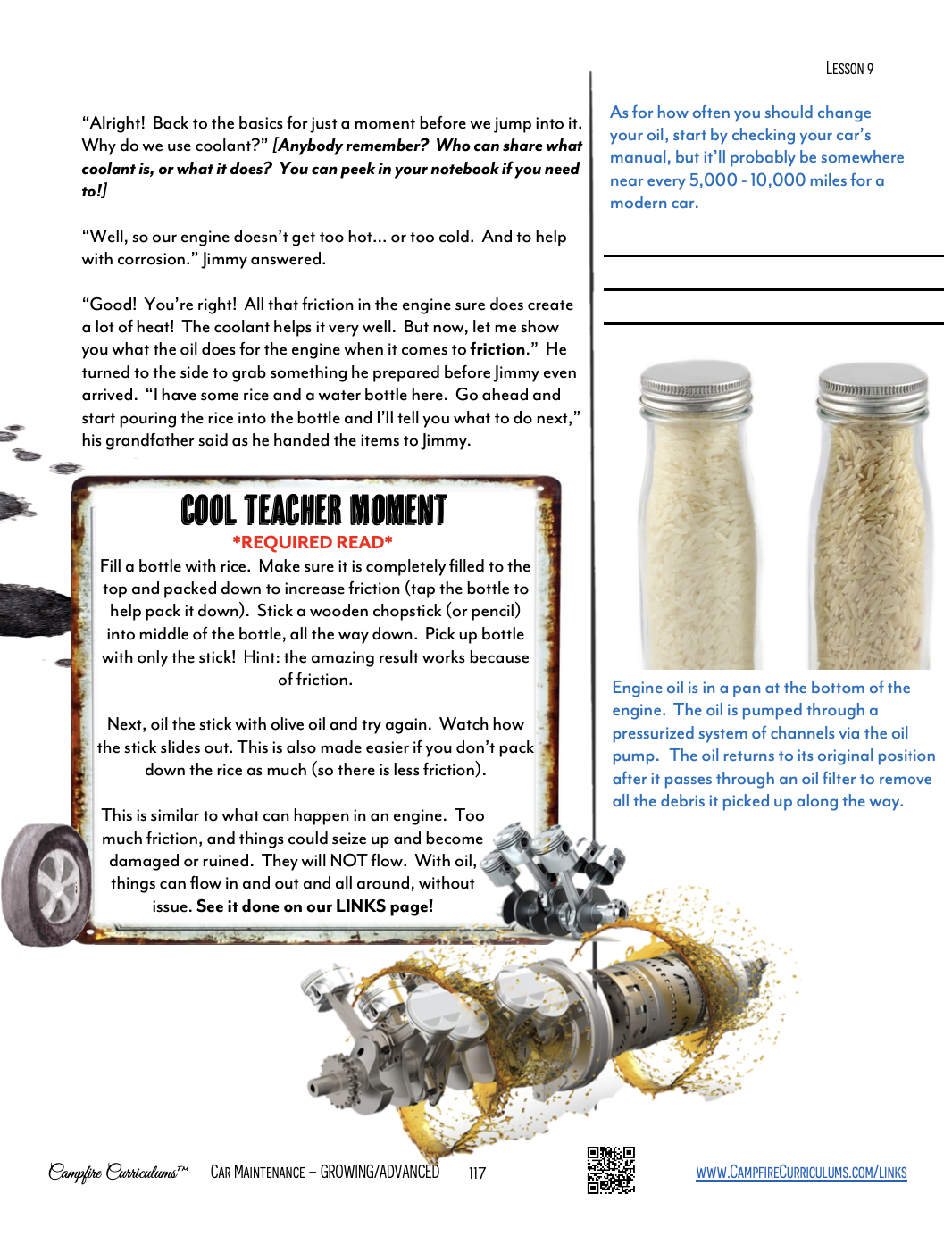
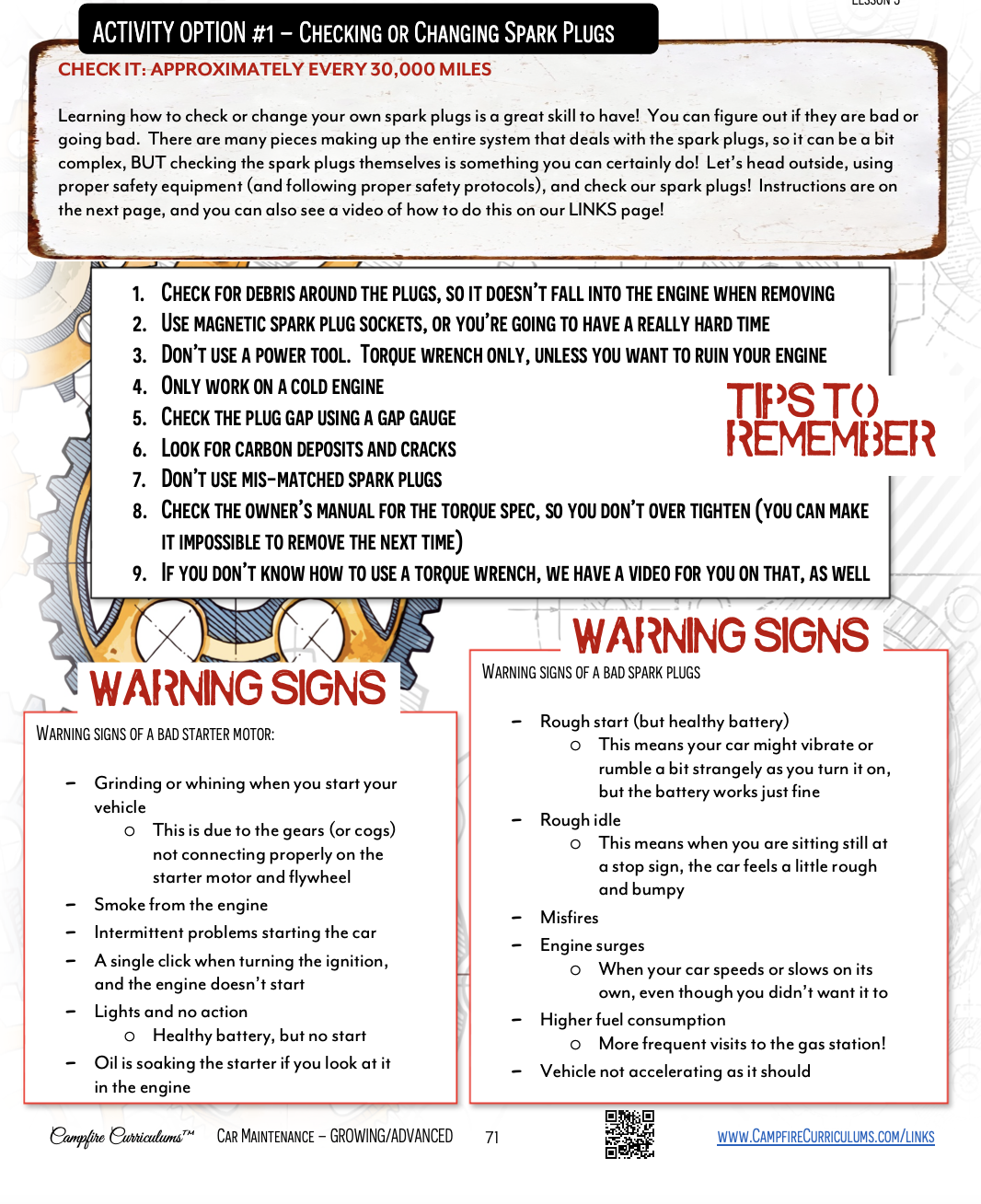
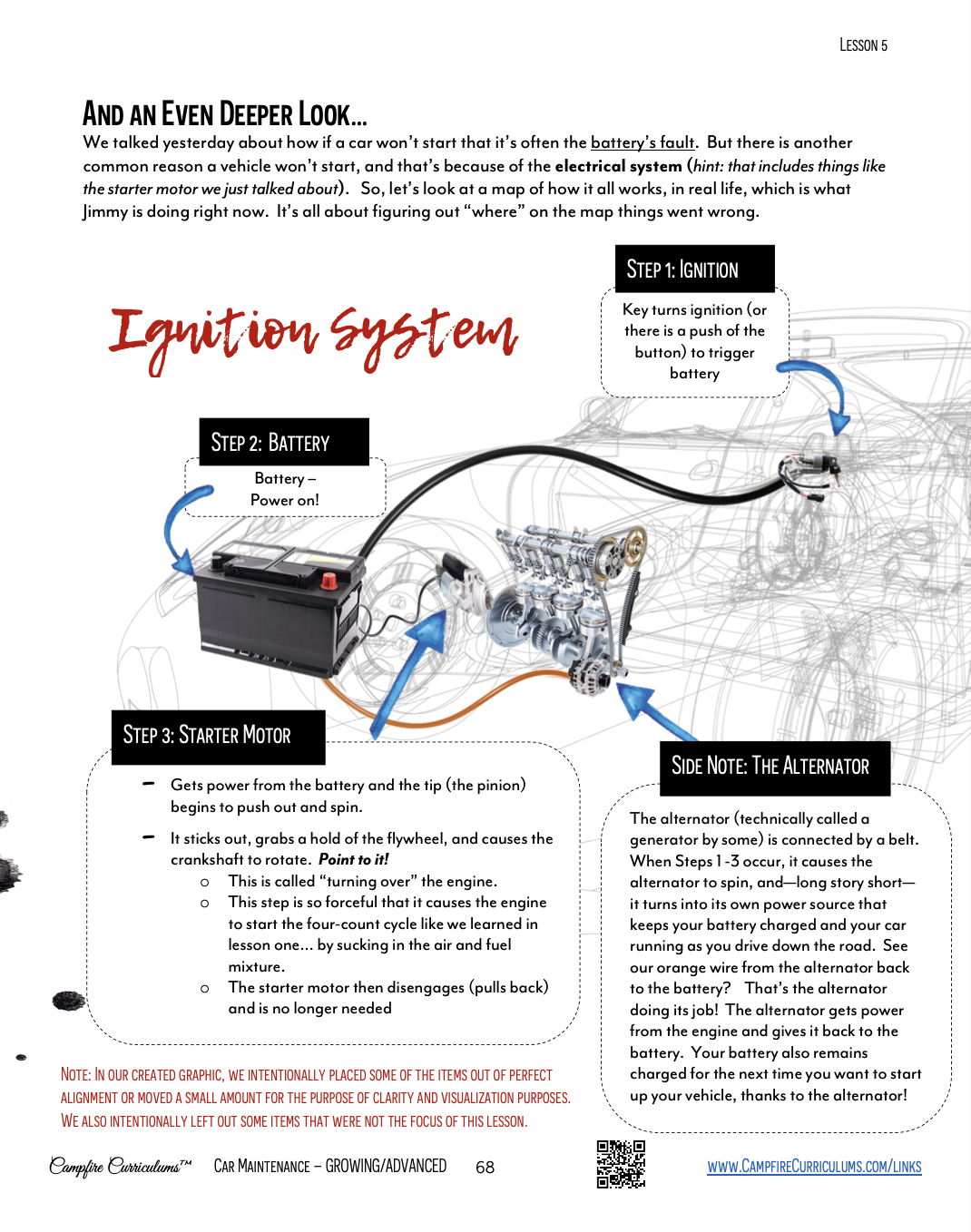
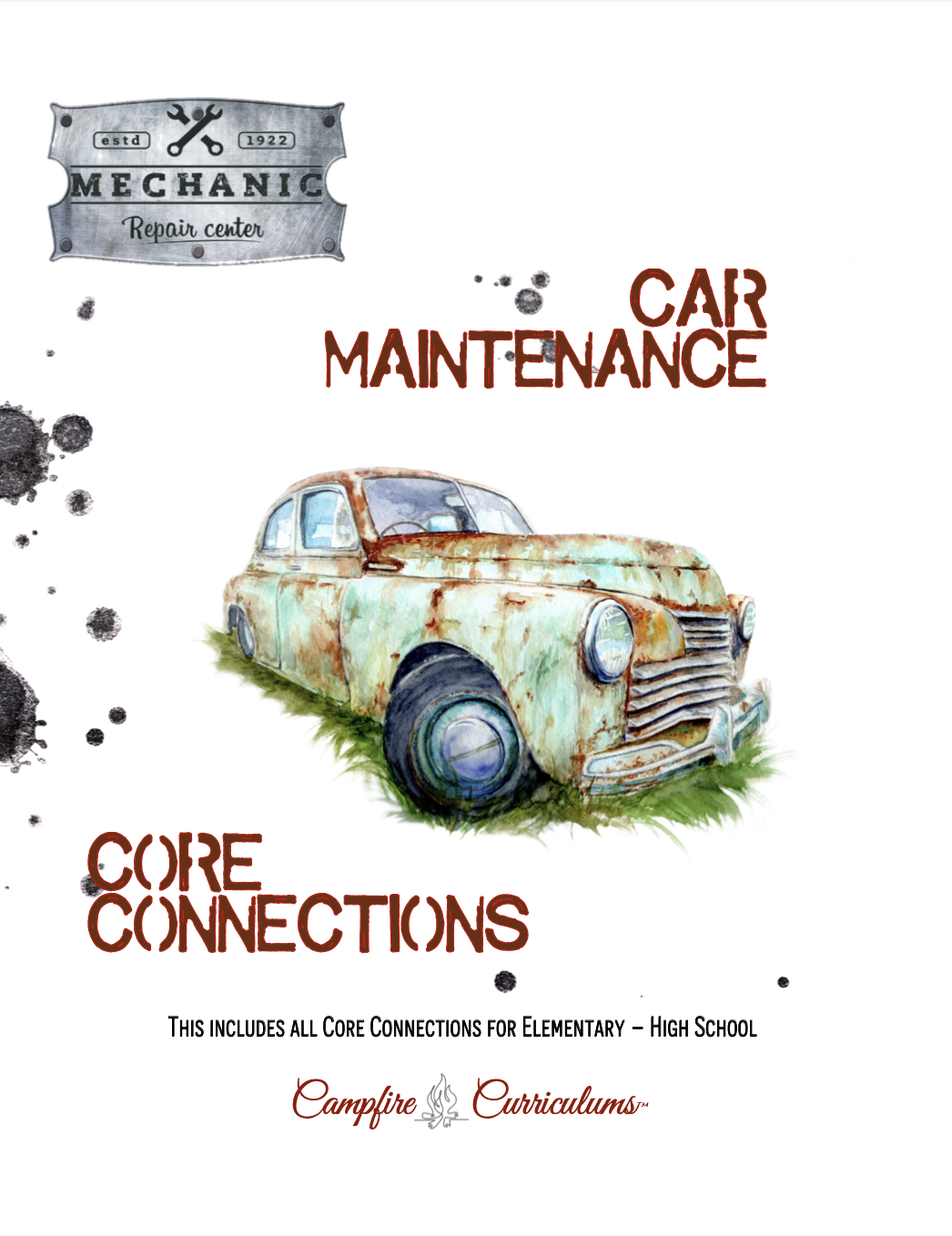
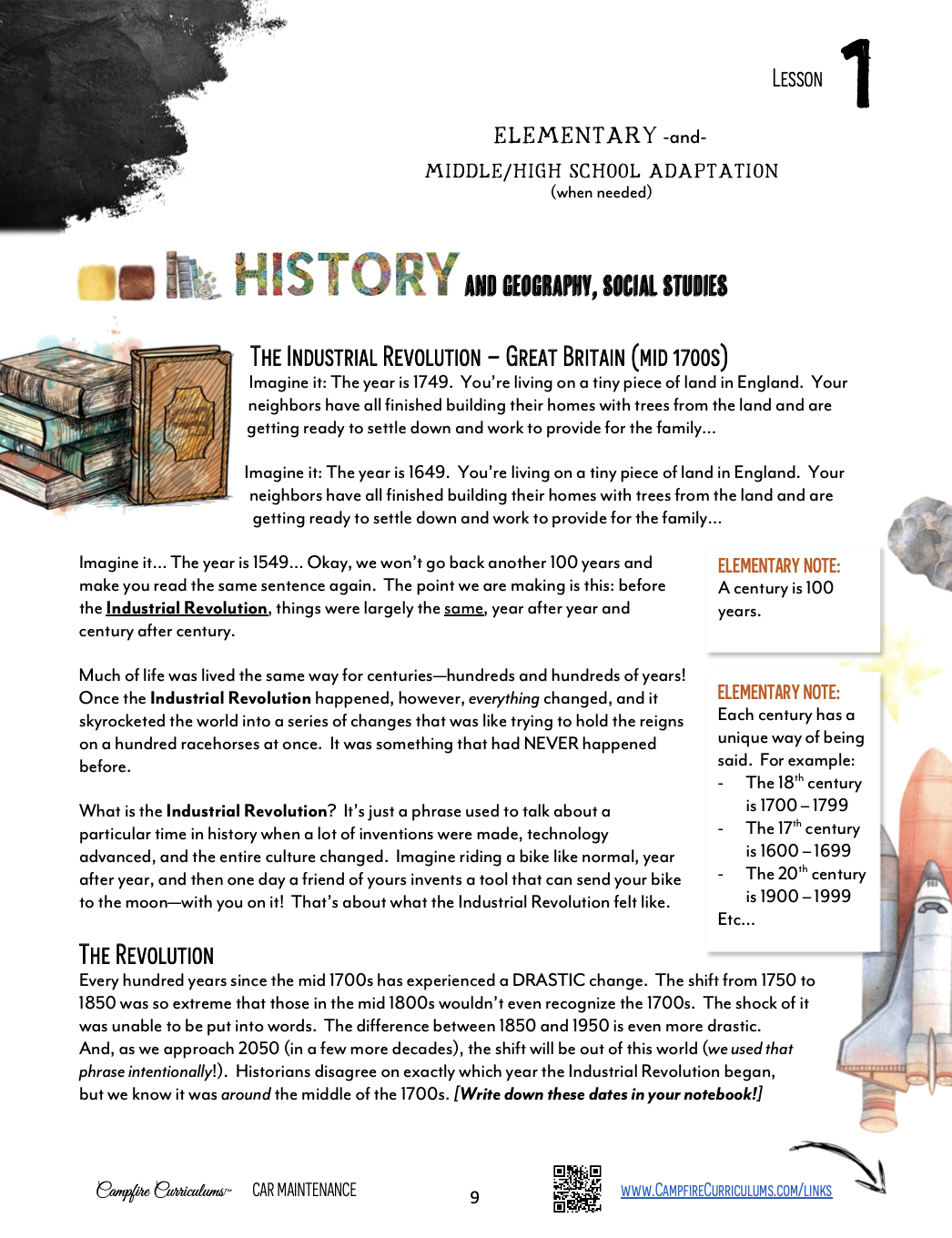
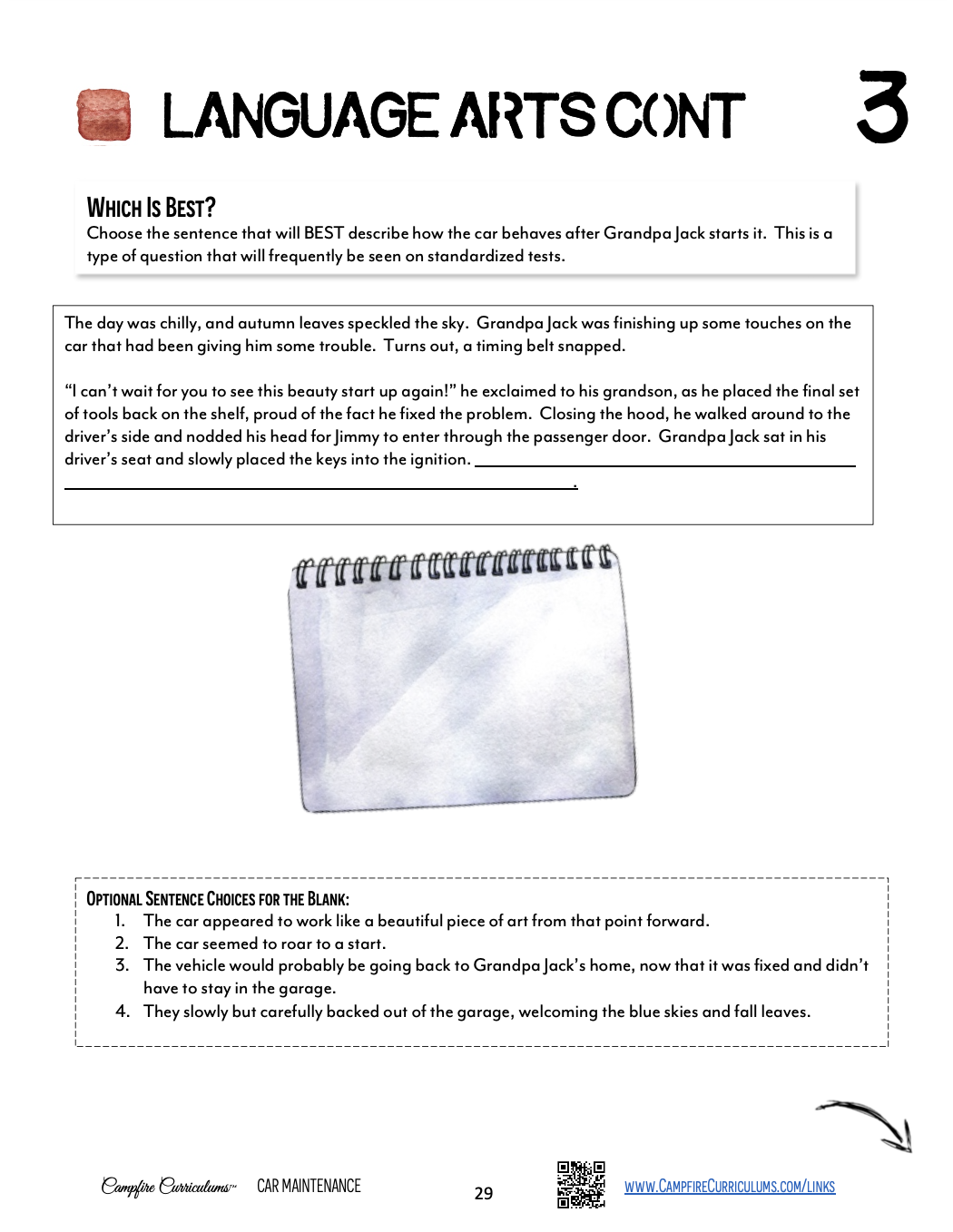
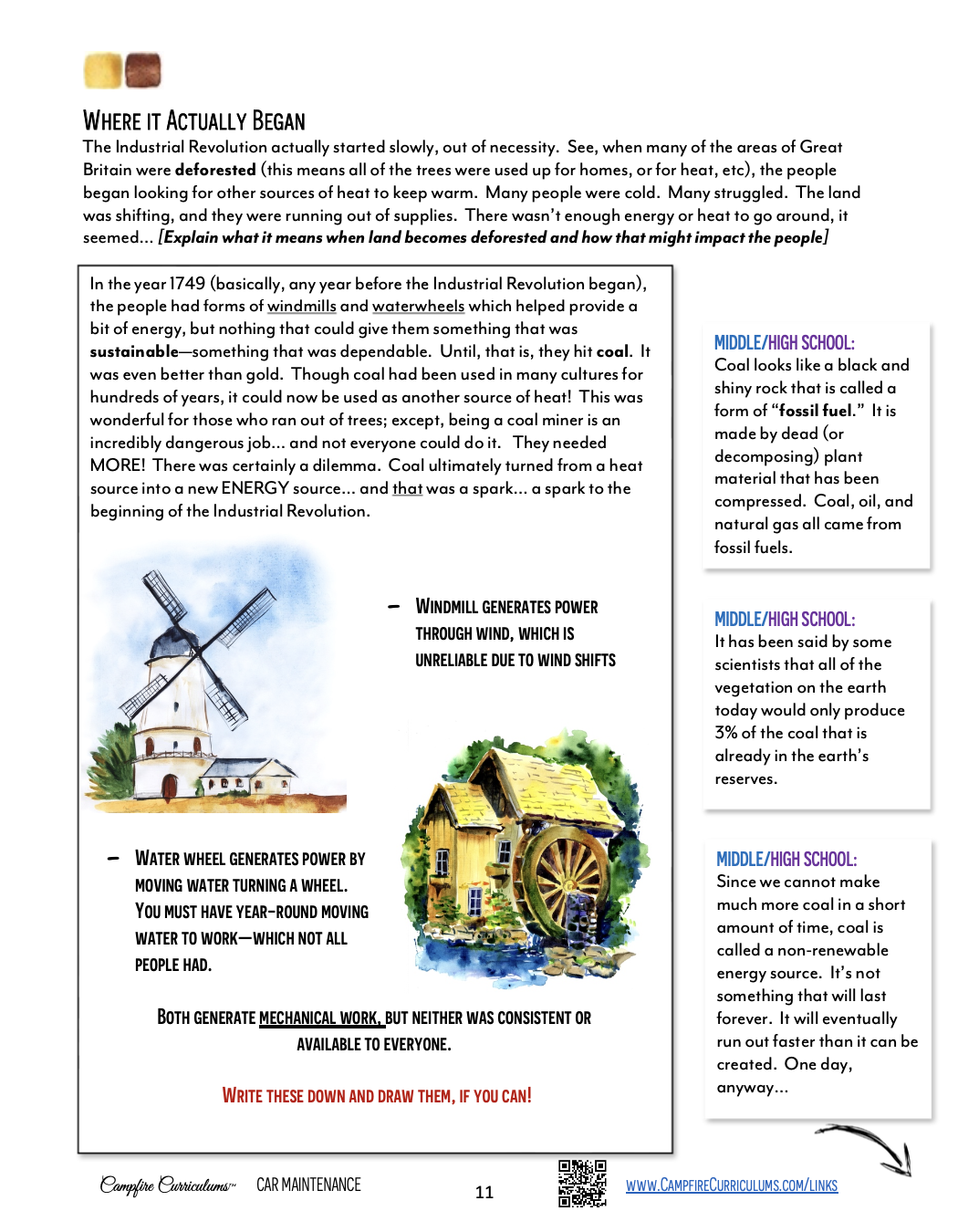
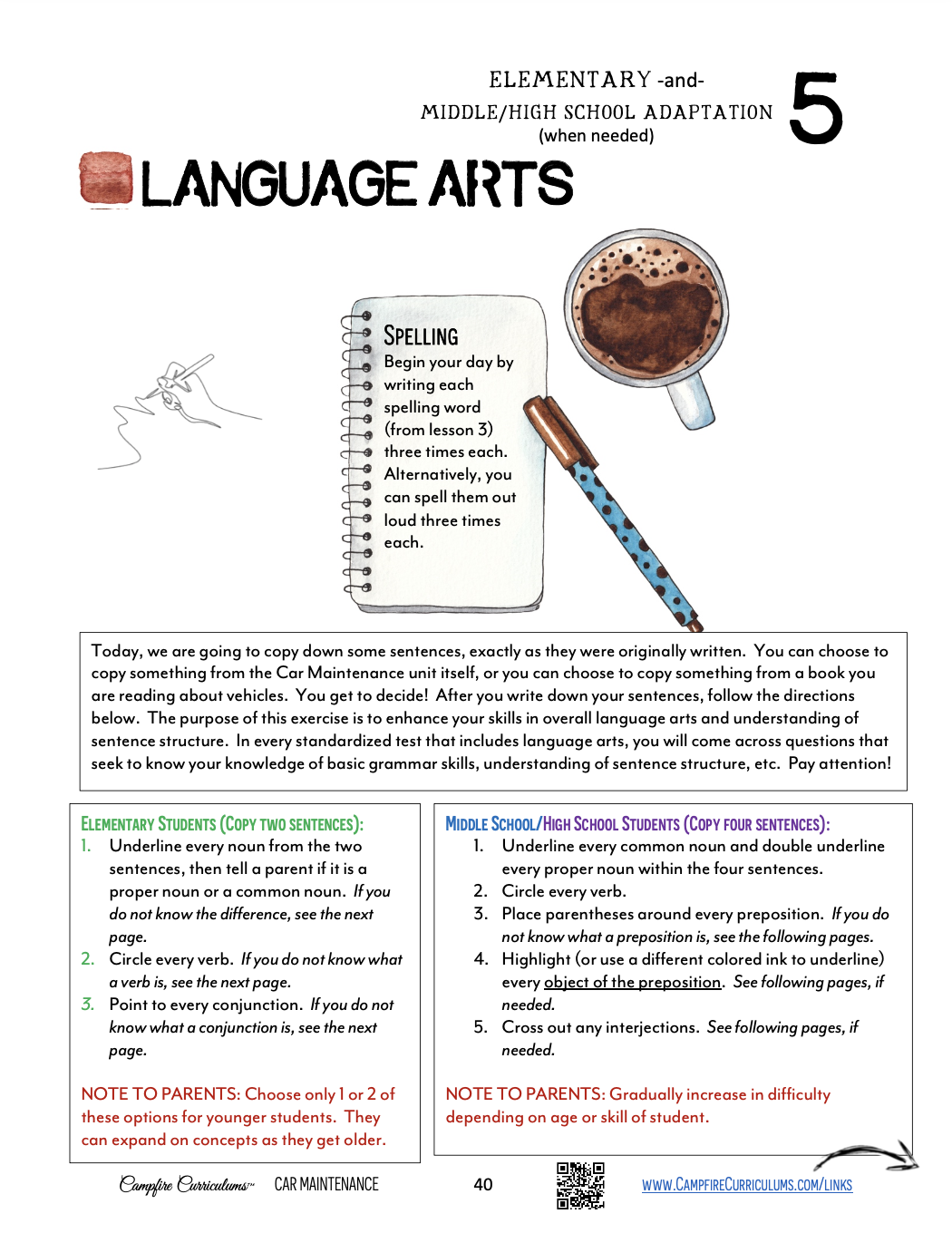
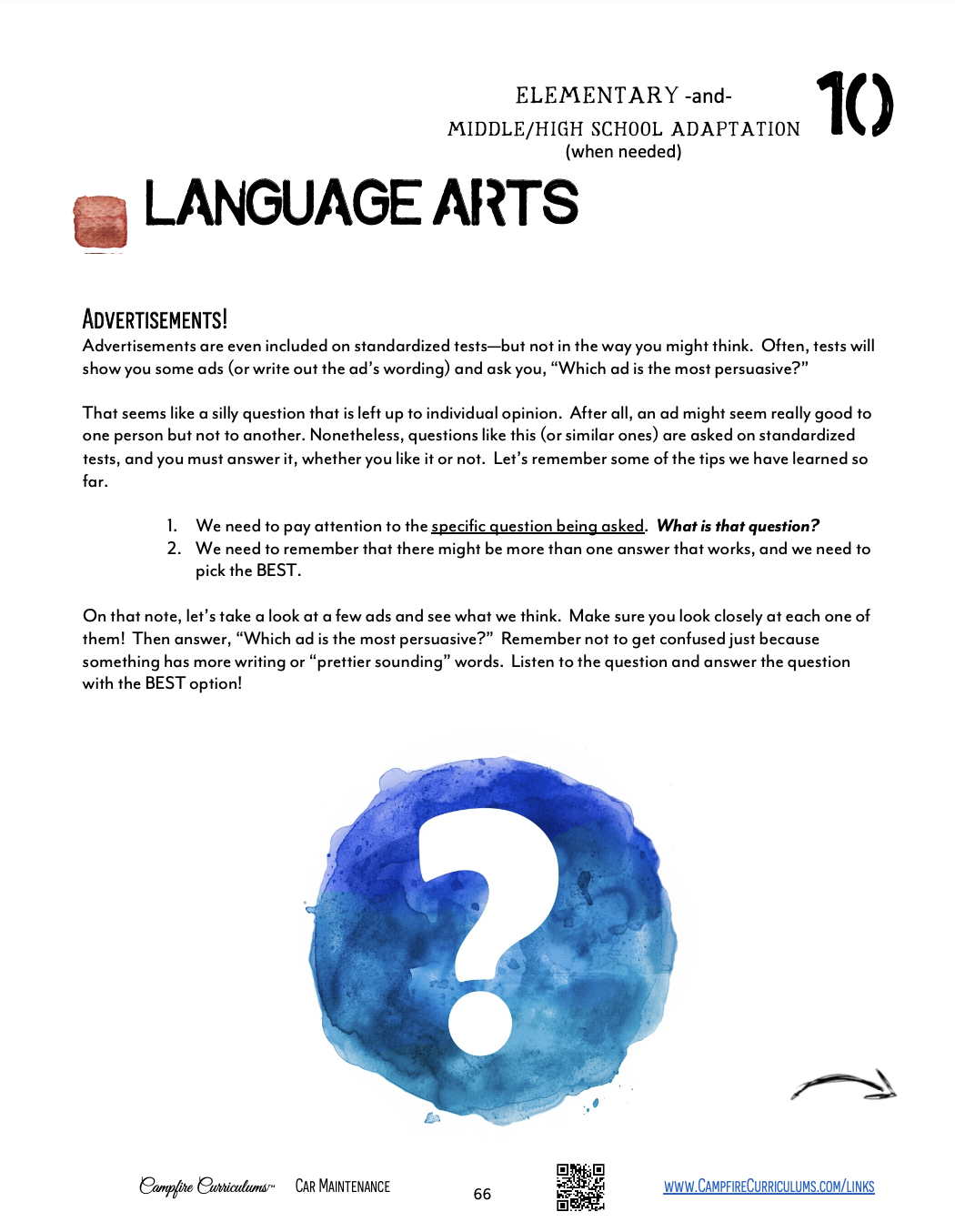
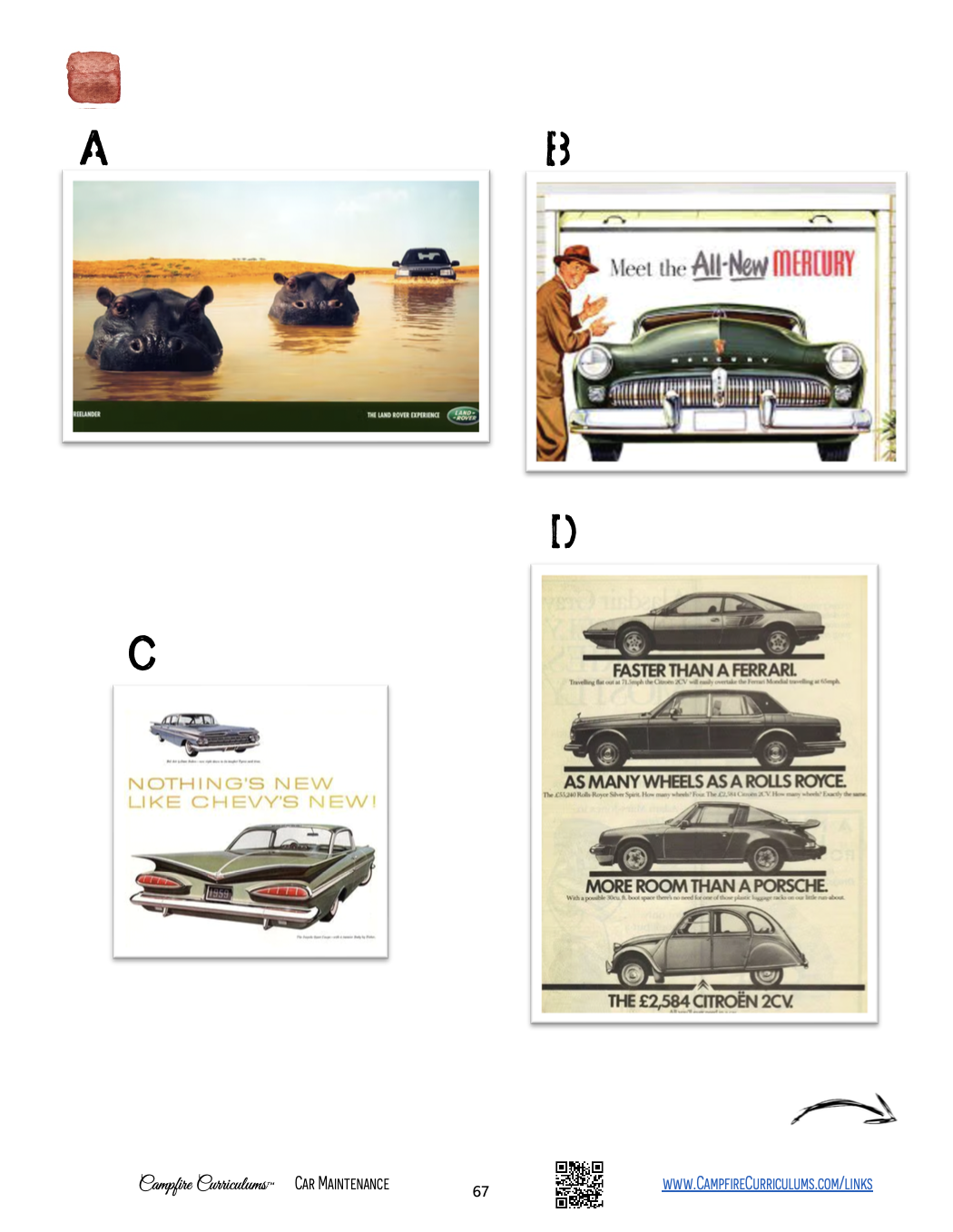
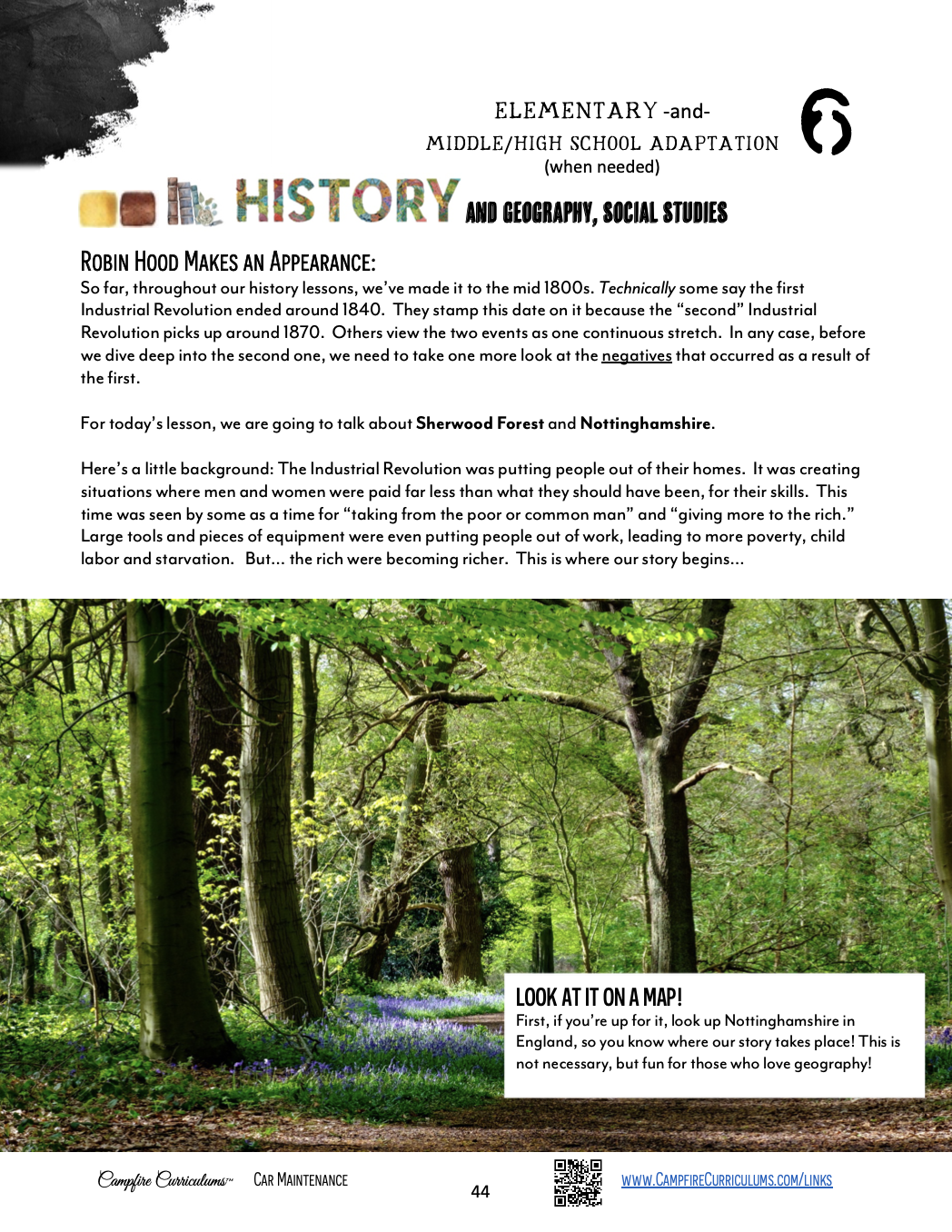

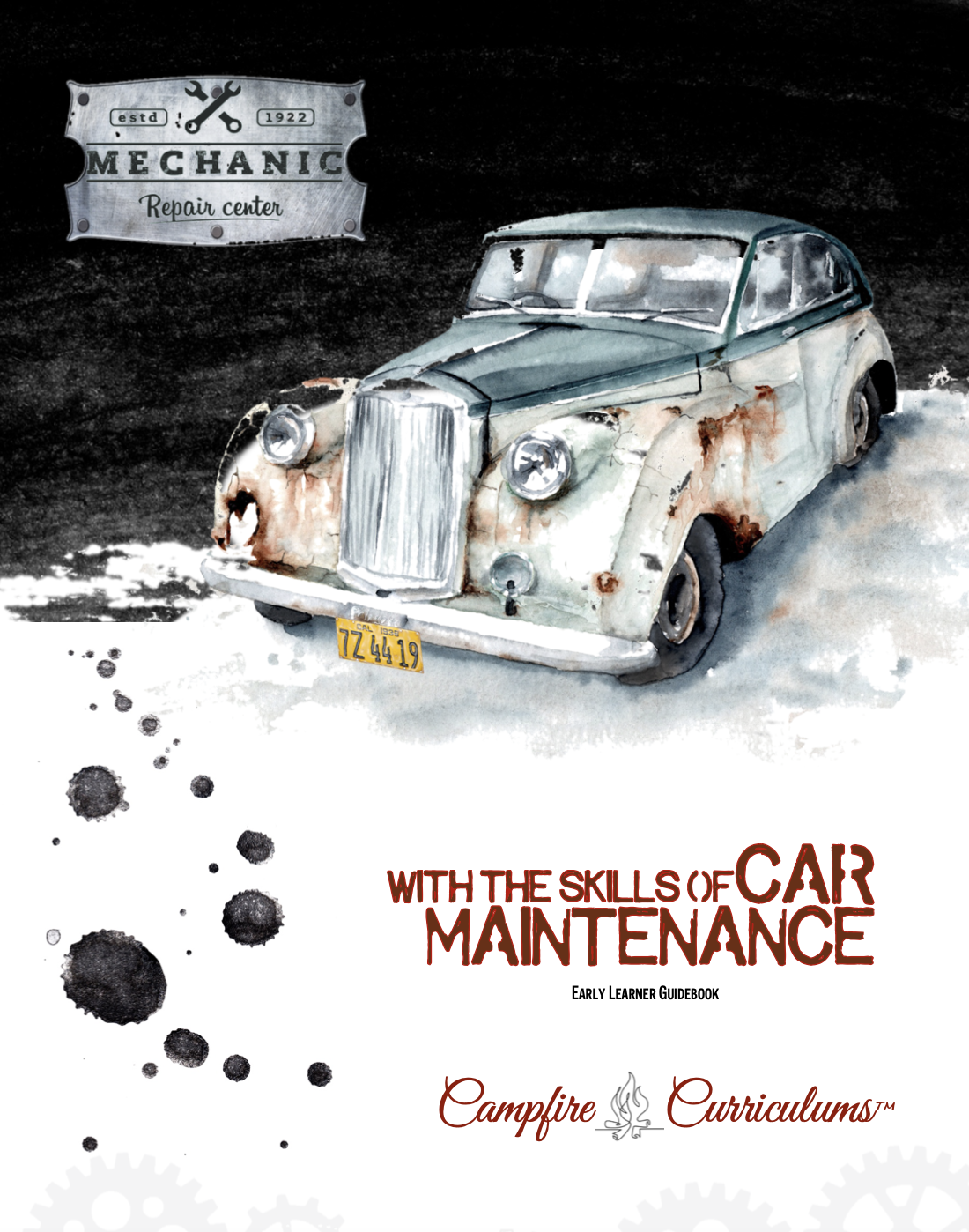
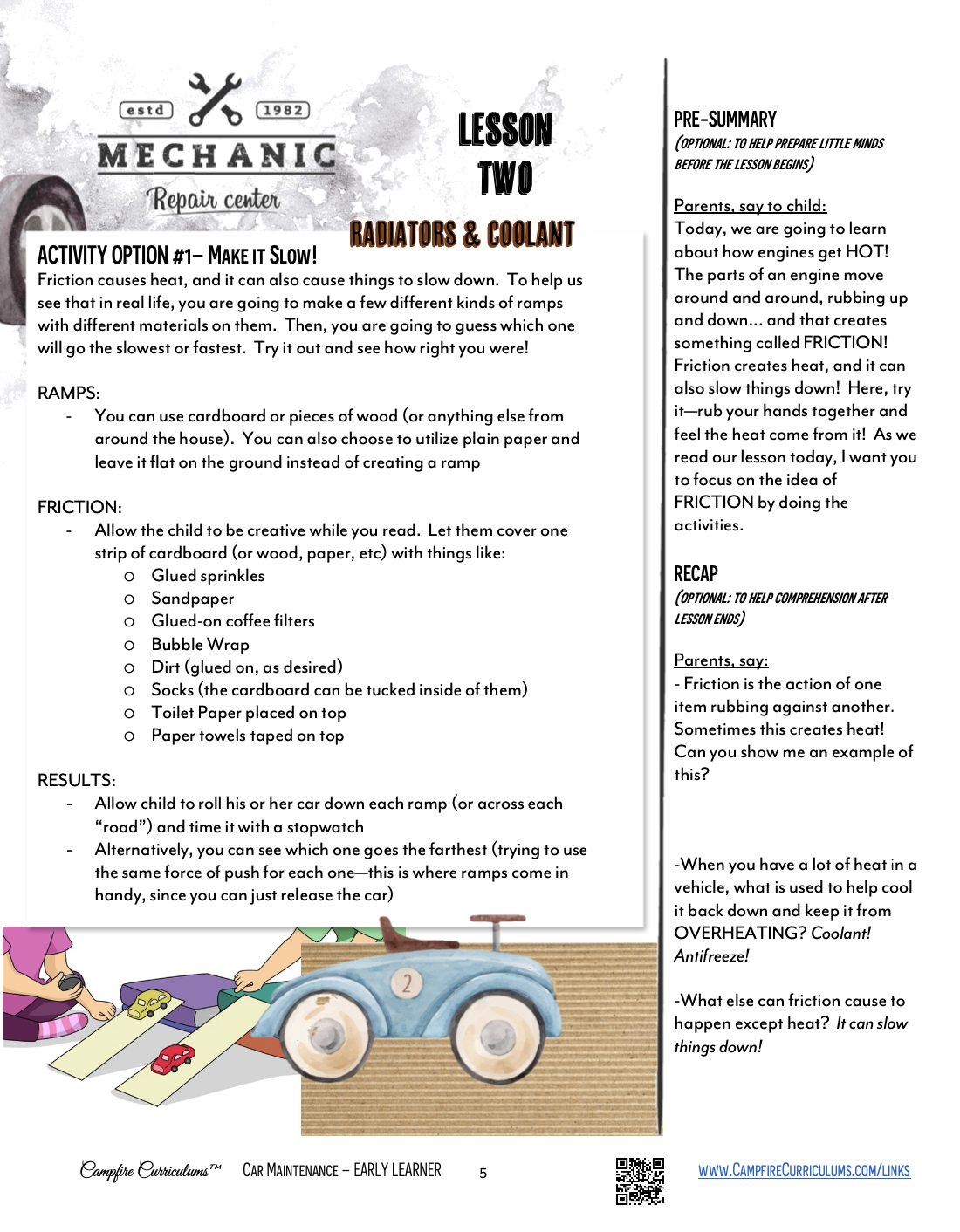
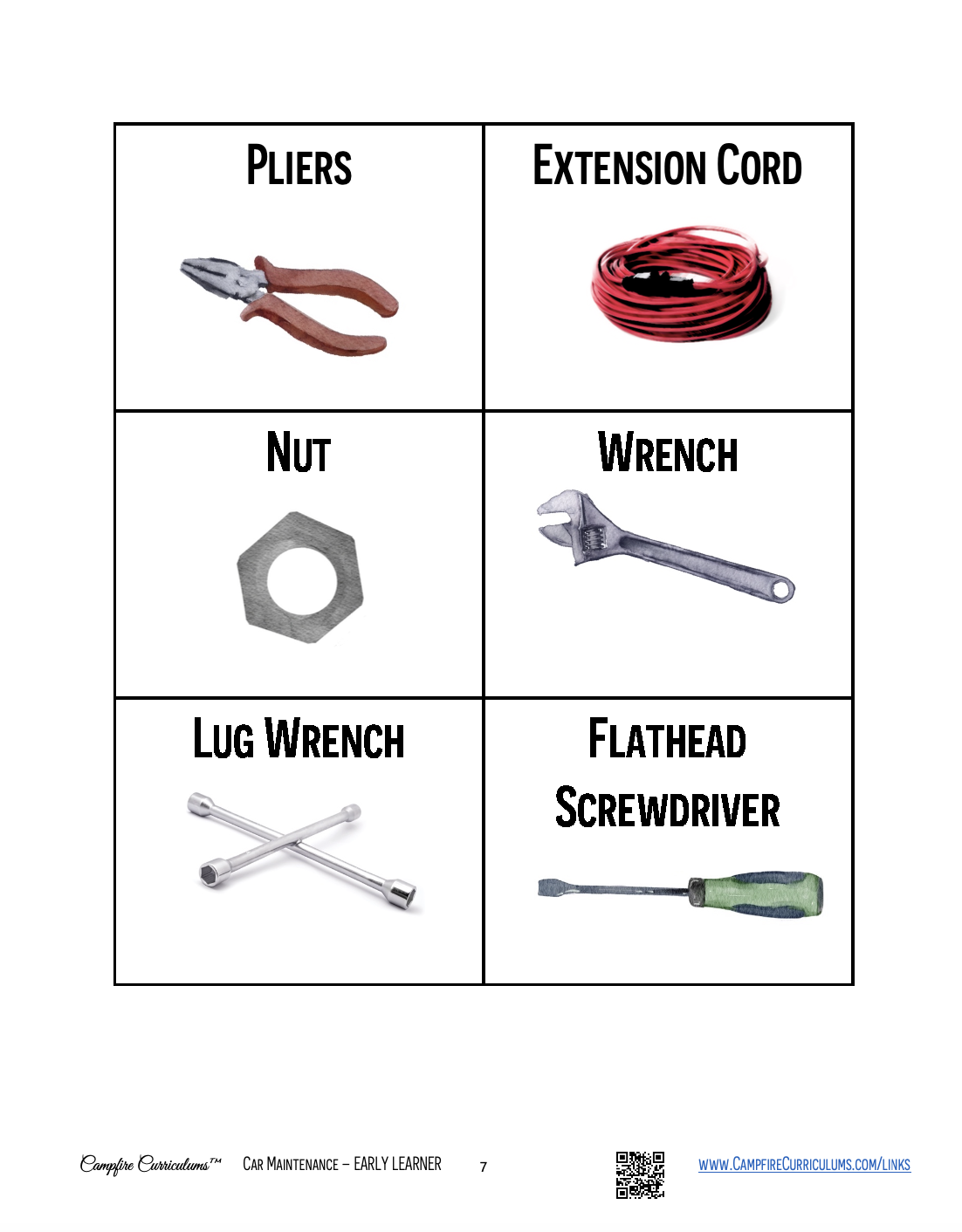
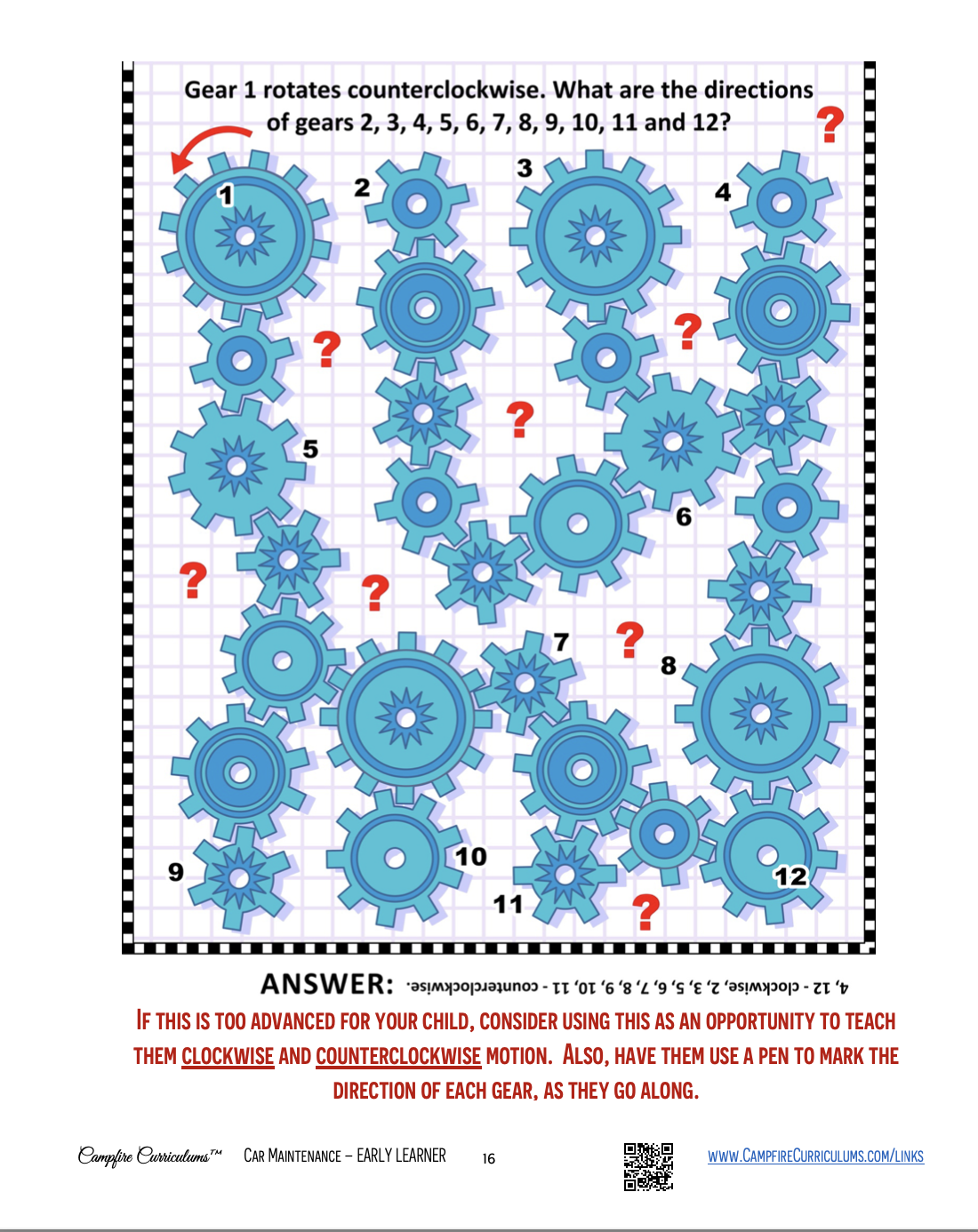
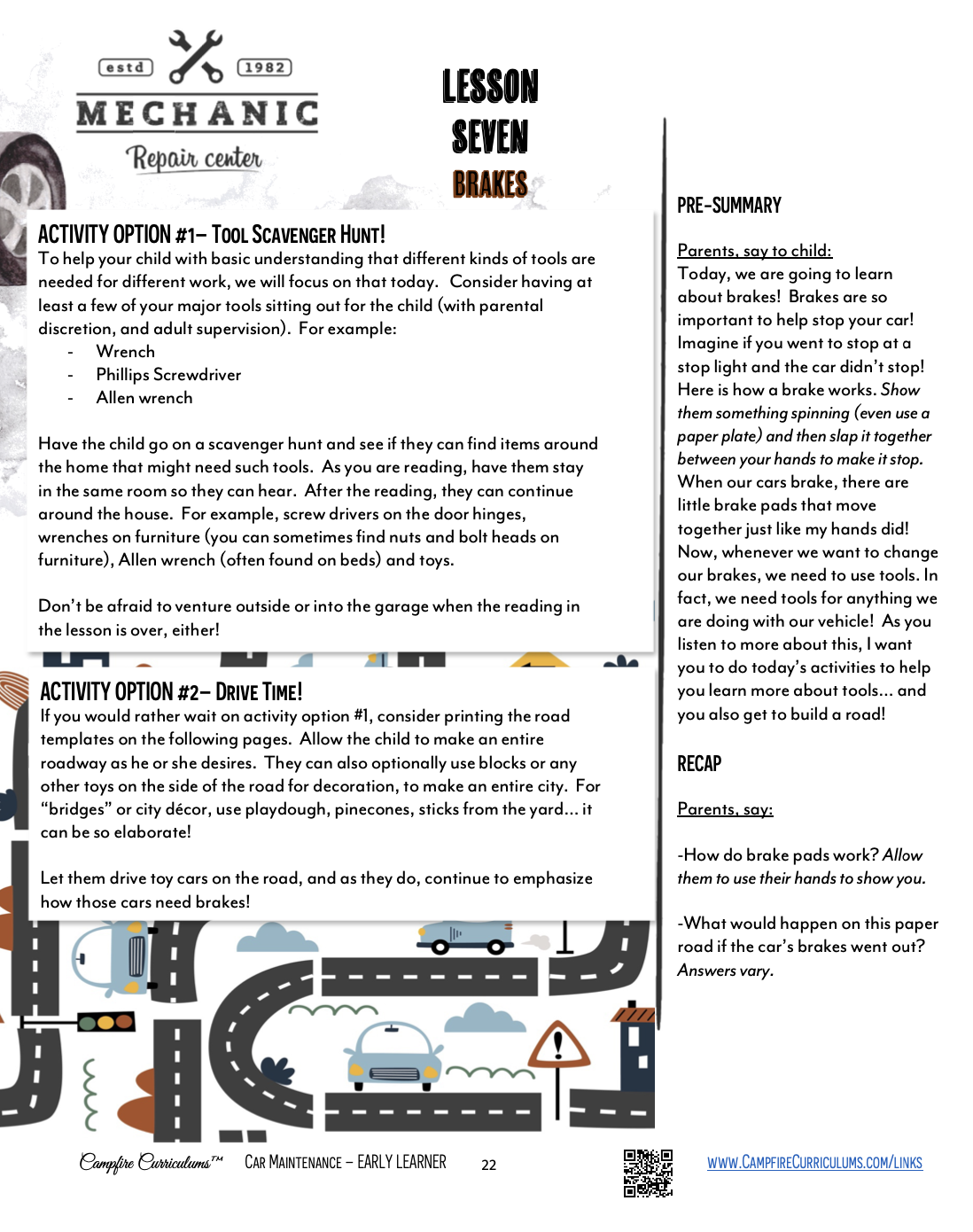

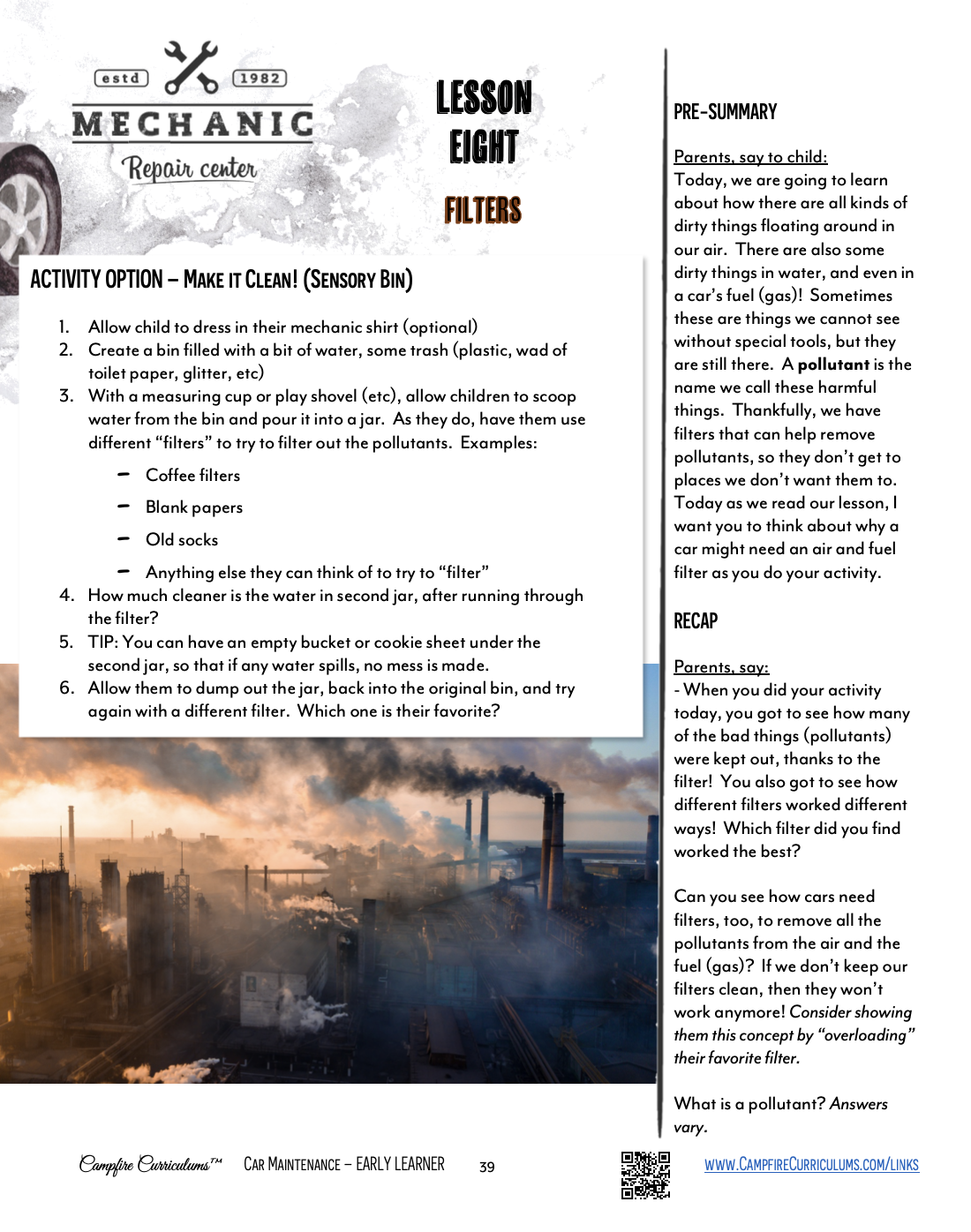
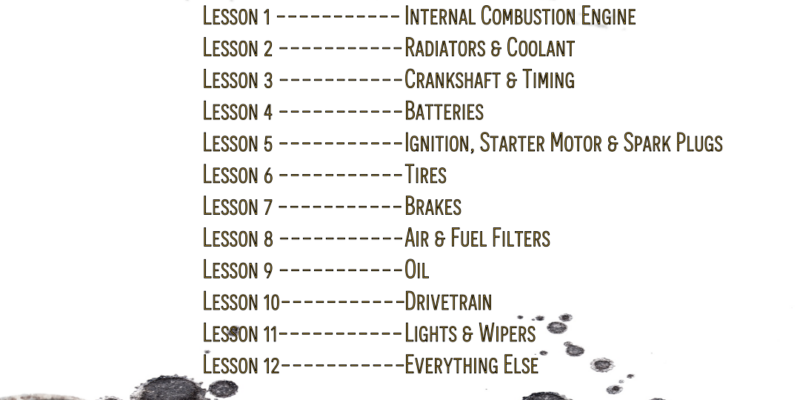

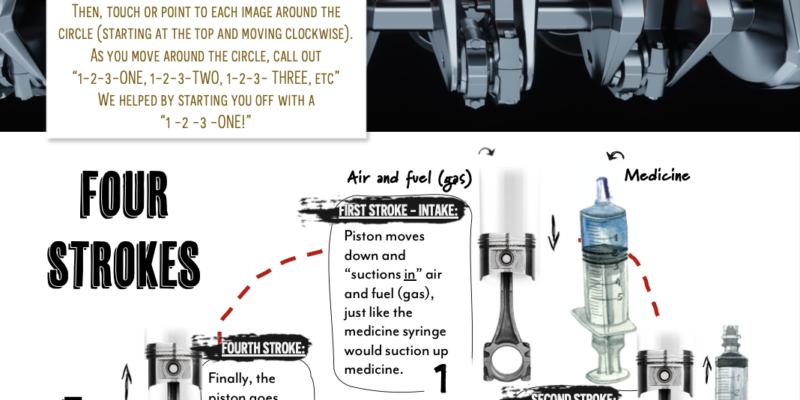
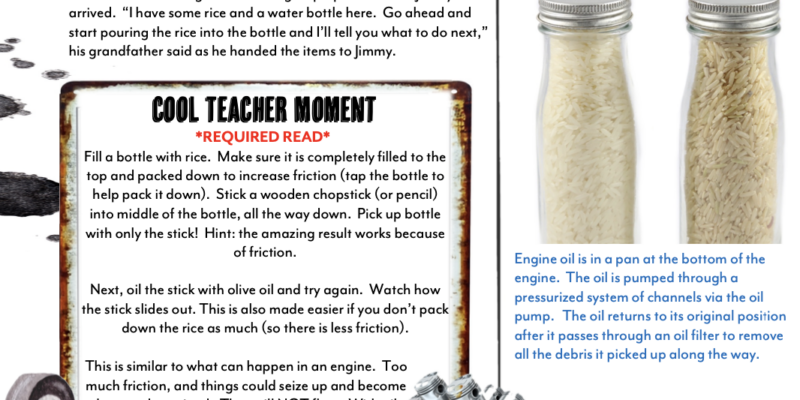
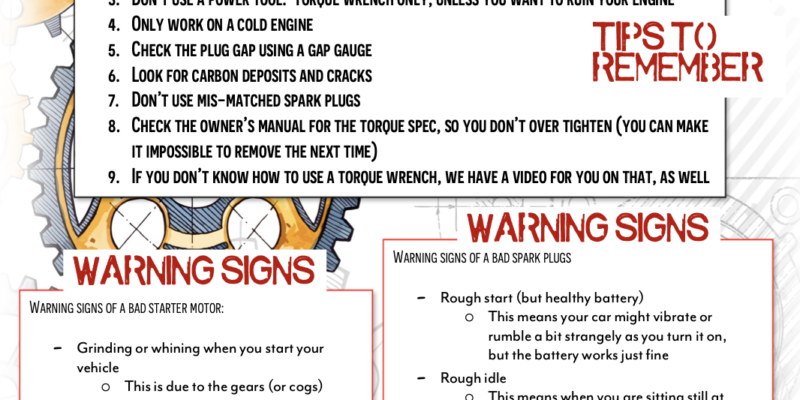
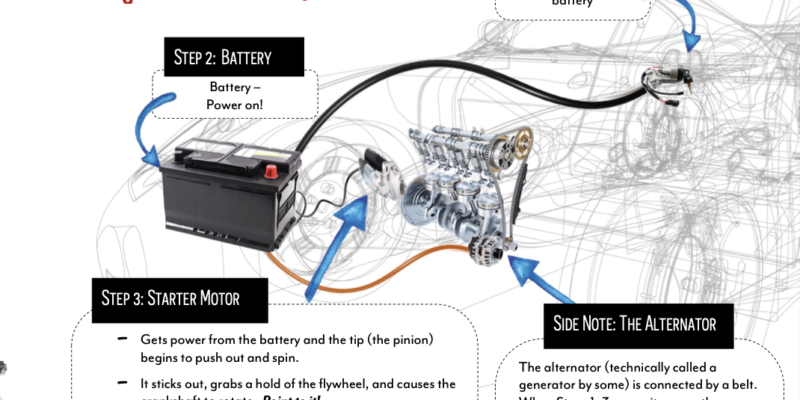
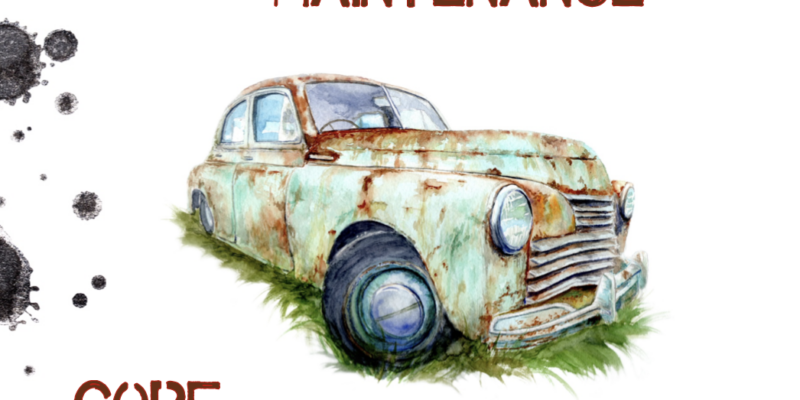
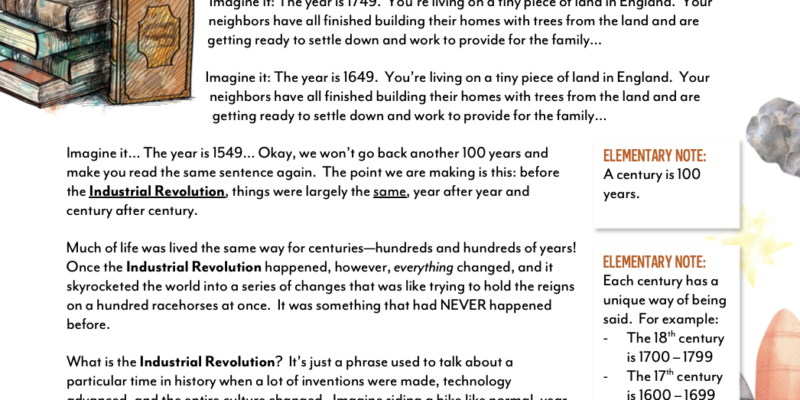
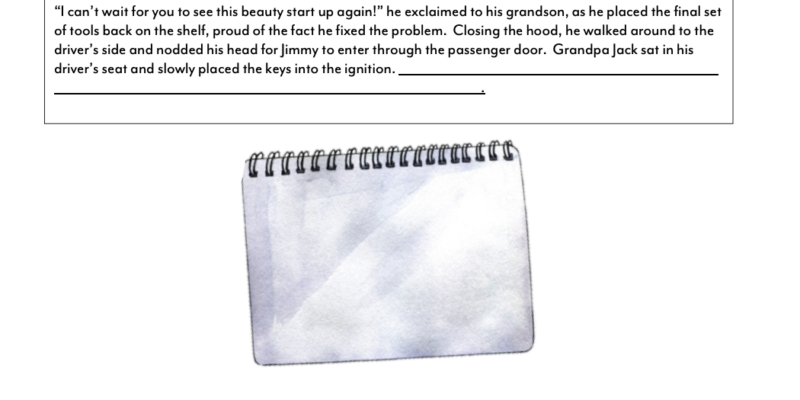
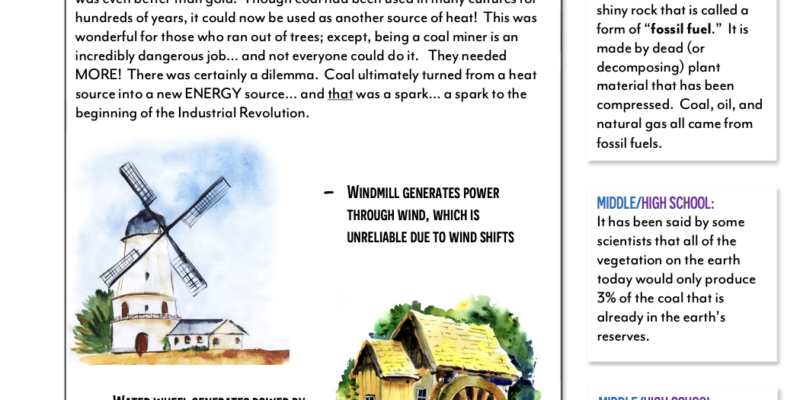
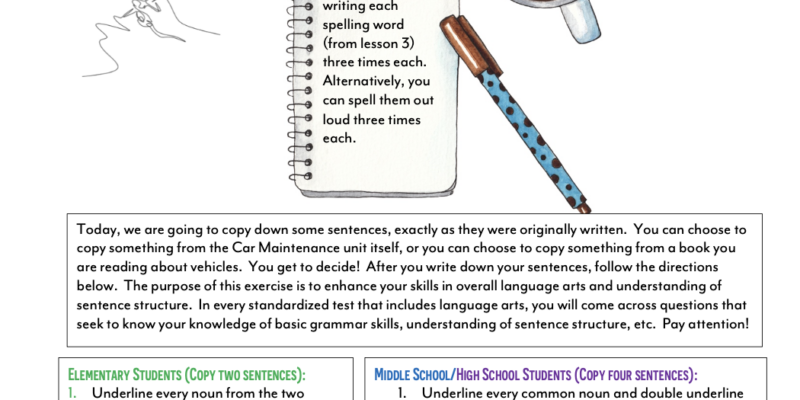
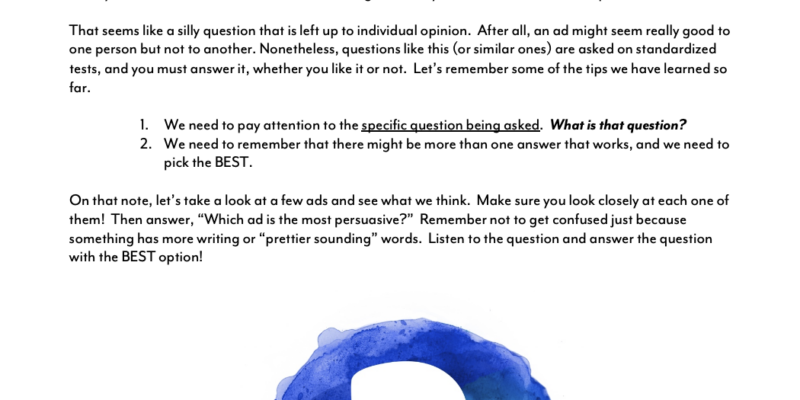
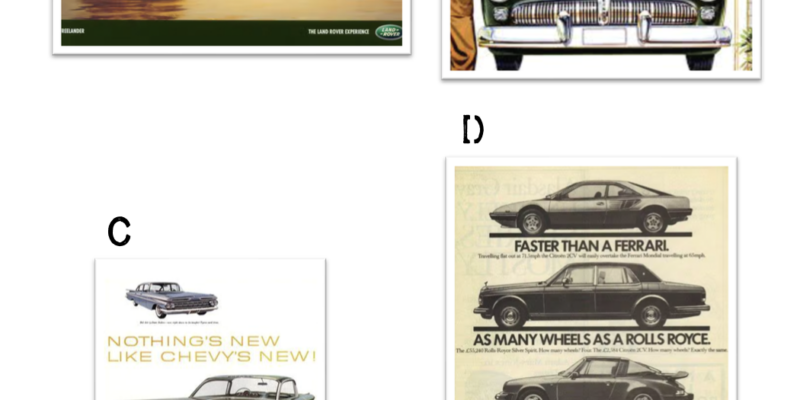



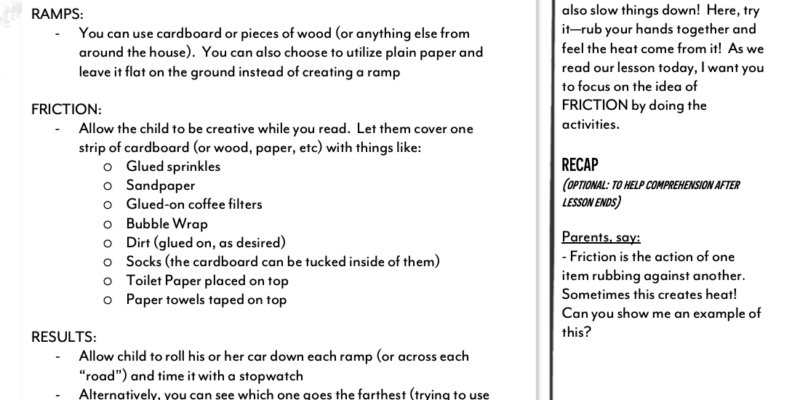
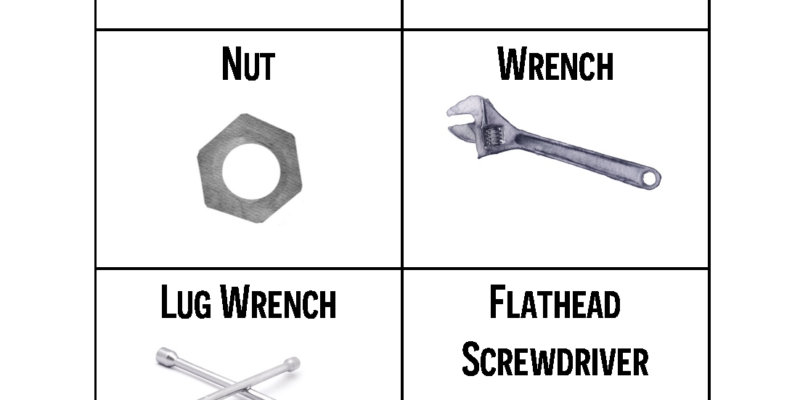

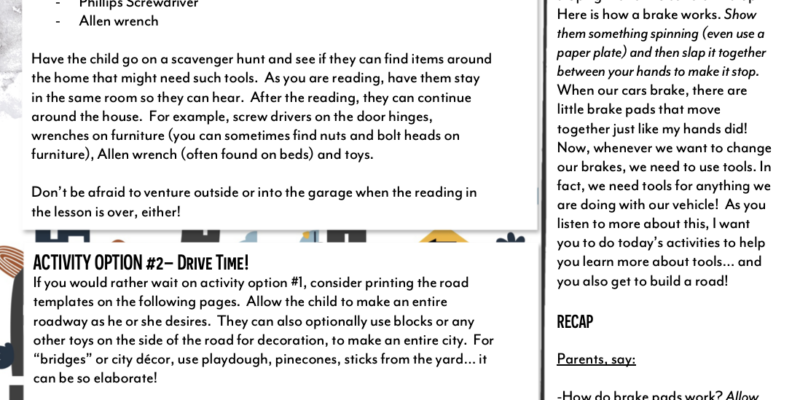

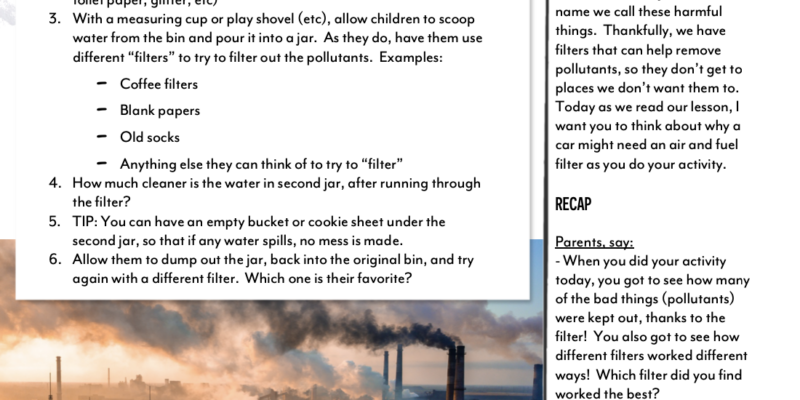


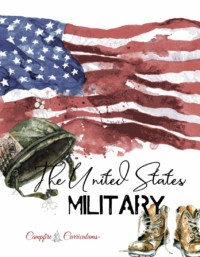

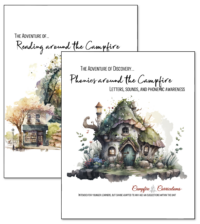


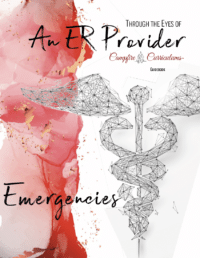
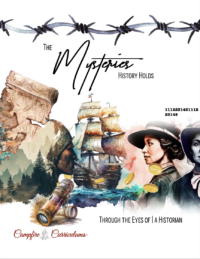



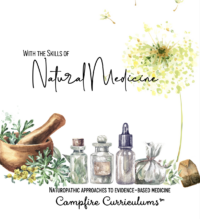


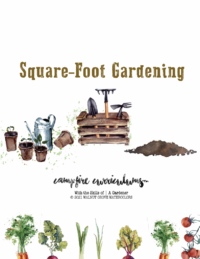
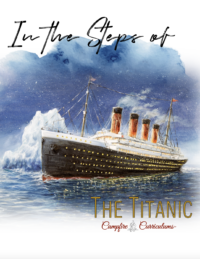



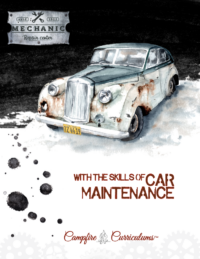
Jen Wright (verified owner) –
Our 17yr old son is driving now, so we wanted him to know all about basic car maintenance. My husband started with oil change (notice we didn’t start in order) because our car needed one. He read the chapter on oil change and was very impressed with every detail. From the story to help you visualize to the experiment to demonstrate friction, to the videos. Everything was well thought out. He is not one to easily hand out compliments, so this is high praise! He was even more impressed of having different levels for younger children so they call be learning on their level. I personally (mom) took auto class in my private school and learned on a honda civic (80’s) but had I not ever learned basic car maintenance, this would be perfect for any adult that wants to learn, to use this as a great course! It’s not just for kids! This encourages me to order other curriculum from Campfire and maybe something for myself. I highly recommend this. I have been homeschooling for over 25 years and wish I had something for my daughter when she was younger (now 30yr old). Thanks for such a great thorough, easy to follow curriculum.
Alicia Balija (verified owner) –
I just want to say thank you for creating such an amazing curriculum. We just discovered you recently and started with the Car Maintenance unit, because my 16 year old is in the process of learning how to install a new engine in his truck and is wanting to learn more. We have quite a large age range studying this unit, my oldest is 18 and my youngest is 11 (+mom). We are only a few lessons in and we’ve already learned so much! Everybody is engaged, participating in discussion and truly enjoying the lessons. I can’t wait to try your other units as well. Thank you!